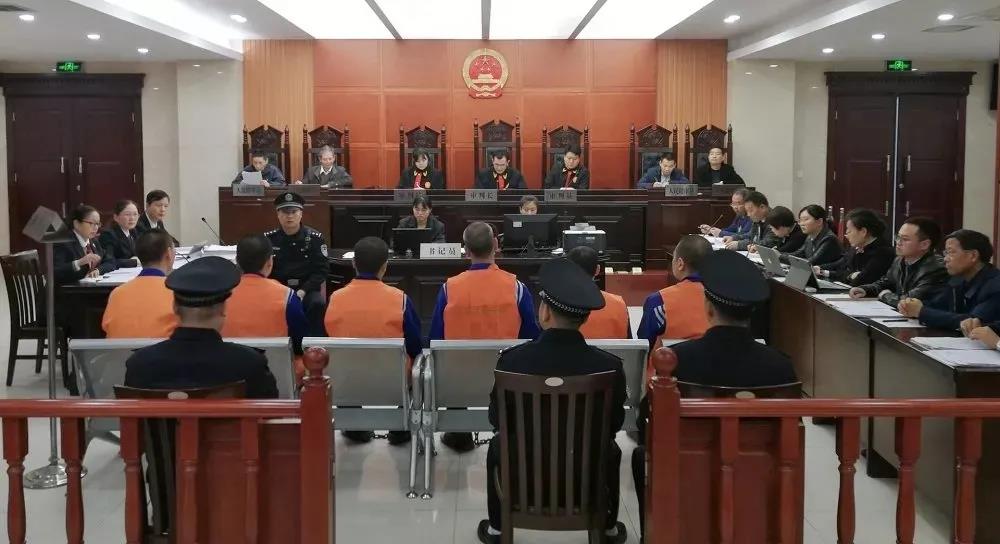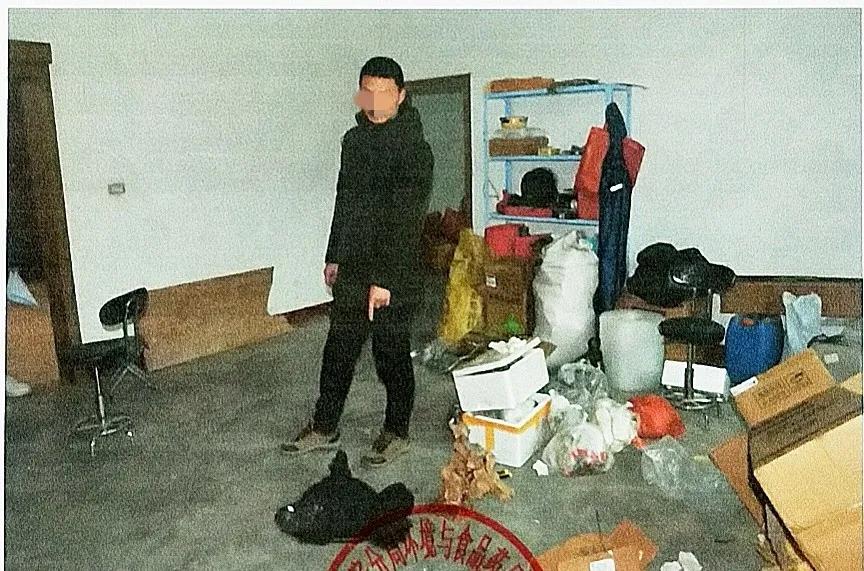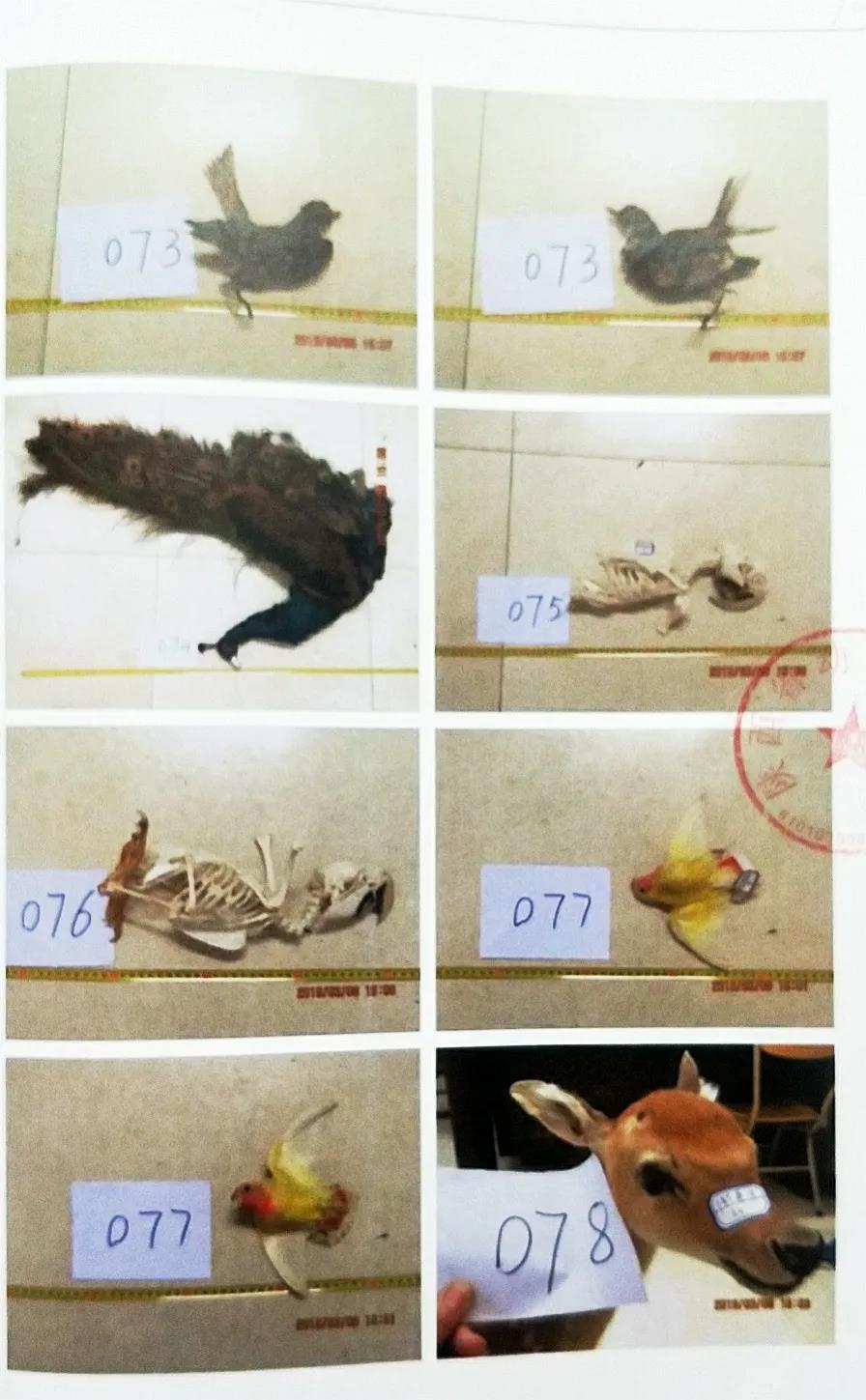Beijing News According to the WeChat WeChat official account news of Ankang Railway Transport Court, on February 20, 2020, Ankang Railway Transport Court sentenced a criminal case involving a large number of wildlife products prosecuted by Ankang Railway Transport Procuratorate in Hanbin District Detention Center.

(The picture shows the trial photos of the case before the epidemic)
Defendants Qu Moumou, Zhang Moumou, Wen Mou, Li Moumou, Che Moumou, Yao Moumou and other six criminals were convicted of illegally purchasing, transporting and selling precious and endangered wildlife products. The principal offender Qu Moumou was sentenced to 12 years in prison by the court and fined RMB 178,600. The other five criminals were sentenced to fixed-term imprisonment of three years and less than three months by the court, and fined ranging from 2,000 yuan to 19,000 yuan; A total of 353 wild animal products, such as sika deer, Burmese python, 13 kinds of second-class protected animals and 98 kinds of other animals, which were transferred with the case, were confiscated according to law and handed over to the competent forestry authorities for legal treatment.

(The picture shows the photos of criminals identifying the scene)
Since August 2017, the defendant Qu Moumou has illegally acquired a large number of dead wild animals through the Internet alone or in partnership with others, and processed them into specimens. In March 2019, Hanbin Branch of Ankang Public Security Bureau seized 353 dead wild animals in its rented place, and some of them have been processed into specimens.

The evidence is conclusive and shocking.
According to the inspection by Shaanxi Institute of Zoology, there are 41 rare and endangered wild animals, among which sika deer and Burmese python are the first-class national protected wild animals. The national second-class protected wild animals include golden pheasant, mandarin duck, sparrow hawk, peregrine falcon, black-winged kite, collared owl, crested eagle, red-bellied eagle, Japanese sparrow hawk, red-horned owl, eagle owl, spotted snipe and fur seal. Appendix I of the Convention on International Trade in Endangered Species of Wild Fauna and Flora (CITES) has a large-headed flat turtle; Appendix II of the Convention on International Trade in Endangered Species of Wild Fauna and Flora (CITES) includes macaw, Alexander parrot, sparrow and green iguana. In addition, there are 312 other wild animals, such as the Chinese chrysanthemum bat.
The first paragraph of Article 341 of the Criminal Law of People’s Republic of China (PRC) stipulates: "Whoever illegally hunts and kills rare and endangered wild animals under special state protection, or illegally buys, transports or sells rare and endangered wild animals under special state protection and their products, shall be sentenced to fixed-term imprisonment of not more than five years or criminal detention and shall also be fined; If the circumstances are serious, he shall be sentenced to fixed-term imprisonment of not less than five years but not more than ten years and shall also be fined; If the circumstances are particularly serious, he shall be sentenced to fixed-term imprisonment of not less than 10 years and fined or confiscated. " The Ankang Railway Transport Court, after hearing the case according to law, found that the above-mentioned acts committed by the defendants Qu Moumou, Zhang Moumou, Wen Mou, Li Moumou, Che Moumou and Yao Moumou were conclusive and sufficient, which violated the law. Therefore, it was found that the public prosecution agency accused the defendant Qu Moumou and other six criminals of illegally purchasing, transporting and selling precious and endangered wildlife products. Qu Moumou plays a major role in participating in joint crimes and is the principal offender; Considering the criminal circumstances, harmful consequences and penitence of the six criminals, the court made the verdict mentioned at the beginning of the article according to law.